- Home
- Anne Bishop
The Pillars of the World Page 11
The Pillars of the World Read online
Page 11
It was open. Not wide open, not obviously open. He wouldn’t have even noticed it if a light gust of wind hadn’t moved the door just enough to catch his attention, and it was something anyone else wouldn’t have thought about twice.
Except he’d been visiting Brightwood since he was a child, and he knew the front door was rarely used and was never left open unless someone was working right outside.
Uneasy now, he dismounted and led Darcy to the cow shed as quietly as possible, then came back to the front of the cottage to study the door.
Ari might have opened the door for some reason this morning and then hadn’t realized the latch hadn’t caught securely when she closed the door. She might have wanted to check the flower beds without walking over sloppy ground. The ground, like the road, was drying quickly from last night’s rain, but Ari got up with the sun, and the ground would have been very wet. In the gray light, she could have easily missed the fact that the door hadn’t latched properly.
Or something could be very wrong.
Pushing the door open, he remained on the threshold, the warding spells making his skin tingle.
“Ari?” he called.
No answer.
He closed his eyes, felt the power in him stir. Astra, Ari’s grandmother, had recognized the power in him. It wasn’t as refined as a witch’s magic, nor as strong, but it let him feel things that other people couldn’t, it gave him an instinctive knowledge of woodland creatures, and it helped him sense magic when it was used around him. If his mother had lived, she might have taught him how to use this gift. Or perhaps his father, being half Fae, could have taught him better since, from what little he could remember, his father’s diluted ability with magic had been more like his own. As it was, what little he knew about the power that was his heritage he had learned passively from being around the witches of Brightwood and by working with it on his own.
No matter. He knew enough for this.
Raising his right hand, he pressed it against that unseen, magical barrier that kept people out unless they were welcomed in.
“You know me,” he said softly, feeling the magic of the warding spell pushing against him as he channeled his own power into his hand. “You know me. I’ve been welcomed in this house before. Let me in. As I will it, so mote it be.”
The magic in the warding spell didn’t pull back like a curtain the way it would have if Ari had welcomed him, but it thinned from feeling like an invisible stone wall to a barrier of thick cobwebs.
As Neall crossed the threshold, he shuddered at the sensation of wispy strands brushing over his hand and face. He shook off the feeling. It was easy enough with something else pushing at his senses.
Someone had been here. Someone new, different, unknown. He could sense the lingering presence that was layered over the familiar feel of Ari’s cottage.
She wasn’t there. He could sense that too. Still, he quickly peeked into her bedroom to make sure she wasn’t there, then the workroom that held the looms and spinning wheels and baskets of yarns that Ari used for her weaving.
As he headed for the kitchen, he glanced down at a chair pulled back a little from the table . . . and froze. He wasn’t sure how long he stared at the saddlebags when Ari said, “Neall?”
She was standing in the open doorway, looking puzzled. She was wearing her oldest clothes, the ones she used when she worked in her garden, and she was holding a small, empty basket in one hand. There was color in her cheeks, and her dark, unbound hair looked like it had danced with the wind. It hurt to look at her, standing there so wild and lovely. Especially now.
Crossing the threshold, Ari looked back at the doorway and then at him.
“Your front door was open, and I was concerned,” Neall said, striving to keep his voice calm.
She frowned at the doorway, but the way her shoulders relaxed told him she probably knew why the door had been open.
“But . . . How did you get in?” Ari asked, turning back to him.
One day he would tell her about his parents and his power. But not today. Not now.
He tried to smile. “I’ve been welcomed many times over the years, Ari. I guess the warding spells recognized me.” The smile faded. The saddlebags sat on the chair between them. “Or maybe it was because I was concerned that the warding spells let me in. They didn’t feel the way they do when you’re here, though.”
She tipped her head a little to one side and looked at him thoughtfully. “How did they feel?”
“It was like walking through thick cobwebs.”
She made a face, brushed her hand across one cheek as if she could feel the cobwebs herself.
“You were out early,” Neall said. Who do the saddlebags belong to, Ari?
She set the small basket on the table. “I took a loaf of sweet bread over to Ahern to thank him for fixing my kitchen door.”
So he couldn’t even do that for her.
His chest hurt. Was this what the songs and stories called heartache?
“You have company,” Neall said, glancing at the saddlebags.
“No,” Ari said quickly. “That is . . .” She looked away.
“You met him on the Summer Moon?”
Her shoulders went back and her chin went up. Defensive pride. He understood it well.
“And if I did?” she asked, challenging.
“Did you give him the fancy?” When she looked at him warily, hurt gave way to the first stirring of anger. “Royce didn’t keep silent about that, Ari. I knew he was coming here, and I knew why.”
“It wasn’t Royce.”
“Then who?”
She leaned against the table, looking weary. “No one you know. He’s not . . . He’s not from around here.”
Neall closed his eyes for a moment. There was mercy in that. At least he wouldn’t look at every man in Ridgeley and the surrounding estates and farms and wonder if that was the man who was using Ari.
“Answer me this. Was he . . .” Impossible to ask. Impossible not to. “Was he kind?”
She relaxed a little, but still watched him too closely. “Yes, he was kind.”
“That’s good, then. That’s good.” He was feeling too many things—jealousy and pain . . . and relief that Ari would not dread this stranger’s return. Because he would return. The saddlebags that hadn’t been taken made that clear. If he continued to return until the dark of the moon . . .
He swallowed hard to ease the constriction in his chest. “Ari, if you should find yourself with child—”
She shook her head quickly.
“If you should find yourself with child,” he repeated stubbornly, “and he won’t stand with you . . . then I will.”
She stared at him as if she’d never seen him before. Or as if something familiar had suddenly turned strange.
“You would do that? You would take a husband’s vow for another man’s child?”
“Your child,” he said fiercely. “Yours. And if I was the man who was raising it with you, it would be mine as well no matter who sired it.”
“Neall . . .” she whispered.
“Don’t answer yet. Just know that I’ll stand with you. You don’t have to be alone.” Needing to escape, he strode to the open door.
“Neall,” Ari said, moving toward him. She kissed his cheek. It was the kiss of a friend, and it hurt him because he wanted it to be so much more. “Blessings of the day to you, Neall.”
His arms came around her, holding her tightly against him. Ari, Ari, my heart, my life. Could he really leave Ridgeley without her? Or would he also be leaving so much of himself that he would be little more than a ghost?
He couldn’t think about that. Not now.
He eased back, stepped away. “Blessings of the day to you, Ari.”
It took effort, but he kept his stride easy and even as he walked to where Darcy was tied. The outward calm might have fooled Ari, but it didn’t fool the gelding. Darcy danced in agitation. He held the gelding to a walk, waved at Ari, who was still stan
ding at the front door, then eased up enough to let Darcy trot.
As soon as he was safely out of sight, Neall turned Darcy and headed back the way he’d come. But not to Brightwood. He needed another reason to be on this road in case he passed someone and the person mentioned seeing him to the baron. He wasn’t feeling steady enough to cope with the tenant farmers he had to see that morning, but there was one place he could go where the feelings he couldn’t hide yet would be noted but not commented upon.
He sent Darcy galloping over the fields to Ahern’s farm.
Chapter Ten
Death called her. Morag hesitated, then reluctantly signaled the dark horse to stop.
She didn’t want to answer. In the two days since the Summer Moon, she had continued traveling south through the eastern part of Sylvalan, even though she was no longer sure she wanted to continue. In those two days, she had led too many souls to the Shadowed Veil so that they could go on to the Summerland. It wasn’t sickness that had killed so many in the villages she recently had passed through. At least, not a sickness of the body. But something had crept through those villages to give Death such a bitter feast. Hard deaths. Cruel deaths. Burnings. Hangings. Drownings. And that young girl, that child, who had been . . .
Morag bit her lip, tried to draw a mental curtain across that memory.
There were other deaths in those places as well. Squirrels and sparrows. An owl. A fox. The rotting, partially eaten bodies surrounded clusters of dead trees. Even in warm daylight, there was something about those dead trees that made her shiver.
She had begun this journey in order to see this part of the human world and gain some understanding of the people who lived here. She had seen more than she had bargained for. She had seen too much. Now she needed a quiet place to rest and renew herself.
But there was no rest here, as she’d hoped there would be. This was one of the Old Places. She could feel the difference in the land and knew it was so. But she also felt a heart-deep despair, very much like what she felt in people gathered outside a sick room when a loved one was suffering through the last hours of living.
Death called her.
Morag closed her eyes and opened herself to Death’s message.
This was not a gentle dying. This was not a soul contained in a body that had lived a full span of years and was ready to return to the Great Mother. Desperation and pain were coming toward her. And fear.
She urged the dark horse forward through the shadows of the old trees.
Gather your own kind, Morag. Let the human world be.
If none of us who have the gift offer to show them the road to the Shadowed Veil, how do the humans find it?
They don’t.
Are you saying they have no souls?
Aye, they have them. Crippled, withered things as hard as stone. You’ll only break your own heart if you try to help them. But you’re still young, and you don’t believe it will be that way. I once felt as you do now. And I broke my heart on stone. You’ll do the same. I can see it in your eyes. It’s glad I am that you’ll show me the road to the Summerland before that day arrives.
That will be a long time from now.
No. Death has become an attentive lover. I won’t see the seasons change again, and when I take my last breath, you will become the Gatherer in my place. You’re the strongest of the Fae who are Death’s Servants, so the name, and the power, will be yours. You will become Death’s Mistress. The others who have this gift can take a spirit once the body has breathed its last breath. But you will be able to gather the spirit from living flesh. You will have the power to kill.
The shadows under the trees thickened. Morag shivered.
There were places in the human world that were so thick with ghosts the land always felt cold. And there were stories the Fae bards sang about human battle-fields.
There was one in particular that, having heard it as a child, still haunted her.
According to the bards, two great forces of men had come together on a battlefield. It was never told why they had come to fight. It didn’t matter. They had come to that place, and as the fighting began, the one who had been the Gatherer in that long-ago time had felt Death’s summons. Taking the form of a raven, she flew over the battlefield, gathering the souls of those who would not survive their wounds and were crying out in agony. But the war chiefs on both sides knew what she was, and they both decided that if she couldn’t gather the souls of their men, Death would not be able to touch them and they would know victory over their enemy. When she flew over them, the war chiefs shouted to their best archers, who loosed their arrows into the sky. A handful of arrows pierced her. As she fell, dying, the souls she had gathered in her wings fell with her to become ghosts on the battlefield. Her own spirit, in raven form, flew away to the Summerland. The war chiefs, now certain that they had cheated Death, threw themselves and their men into the battle. The slaughter was ferocious, and the land turned red from the spilled blood.
The song said that no man walked away from that battlefield, and that no Fae who had the gift to be Death’s Servant had ever returned to that place to gather any souls. And it said that the ghosts of those men were still fighting that battle, over and over and over, and if a person stepped onto that land, he would hear the clash of swords and the battle cries and the screams of horses and the desperate pleas of the dying. Over and over. And never would it end.
Why am I thinking of that story now? Morag wondered. Reining in the dark horse, she studied the meadow beyond the last trees. There were no shadowed places there to indicate Death’s presence outside of the Great Mother’s circle of beginnings and endings. But . . .
There was anger coming toward her. And there was power herding that anger the way dogs herded sheep, driving it toward some completion. That power felt almost Fae, but it wasn’t Fae. And it didn’t belong to the Small Folk. It wasn’t clean magic, whatever it was.
But it was familiar. This is what still lingered in those villages she recently had passed through.
Death called her.
She urged the dark horse forward at the same moment a woman burst from the trees on the other side of the meadow. The woman ran as best she could, heading straight across the meadow for the trees that were the border for the Old Place, but there was something wrong with her legs that kept her from taking a full stride.
A moment later, a pack of men burst from the same trees, their faces filled with such ugly emotions they looked like they were wearing twisted, obscene masks. Most of them carried clubs. Some just held a rock that filled his hand. Behind them rode a young man dressed in a fine black coat. His face shone with an unbearable ecstasy.
As soon as she saw him, Morag knew he was the source of that other power. He reminded her of a septic wound, full of pus. Rotten.
Before she was out of the trees and galloping across the meadow, the men had caught the woman and pulled her to the ground.
Fae horses had silent hooves, so there was no sound to cover the woman’s screams, or the sound of rock and wood against bone.
Morag used no glamour to soften what she was. As she rode toward them, one of the men glanced up. He dropped his club and pushed against the other men, trying to back away.
“It’s one of the Fae!” the man cried.
“It doesn’t matter!” the young man in the black coat shouted. “There’s nothing she can do!”
Isn’t there? Morag thought as she rode toward the men. Rage flashed through her, flooding her until it was the only thought, the only feeling.
Her own power lashed out, striking the young man in the black coat. She gathered his soul, held it for a moment, then released it. That moment was long enough to sever the link between body and soul. She watched his body fall from his horse. His ghost stood nearby, too intent on trying to retain control of the men to notice.
Seeing the ghost, a man screamed, “She’s the Gatherer!”
Dropping their clubs and rocks, the men bolted for the trees.
&
nbsp; Morag didn’t pursue them. Reining in close to the woman, she dismounted and knelt beside the still body. The woman wore nothing but a torn, sleeveless shift that fell to her knees.
Morag looked at the travesty that, not too many days before, must have been a healthy body. She wondered what had been done to make the woman’s legs look that way—and she wondered how much courage it must have taken to try to walk, let alone run, on those legs. She saw burns on the arms. She saw the swollen left hand that was full of broken bones. She saw the holes in the woman’s face where something had pierced her cheeks. She sensed the damage that had been done inside the woman—damage that would never heal well enough to make living anything but a prison.
The woman opened pain-glazed eyes. She tried to speak, but her tongue seemed too swollen to form words. Had it also been pierced?
“Who?” It sounded more like air being forced out than a word.
Before Morag could answer, the young man’s ghost spoke.
“They may have run, but I’m not afraid of you,” he said. “Your time in the world is done. After we rid the world of her kind, we’ll also rid the world of yours. Then men will rule as they were meant to rule, and there’s nothing you can do to stop us.”
“Nothing?” Morag asked softly.
He smiled at her, and she knew with unshakable certainty that he was a man who reveled in inflicting pain. He was a man who found controlling and manipulating others the most intense form of seduction.
“Nothing,” he said.
Her only answer was to look at the ground behind him.
His smile wavered. He glanced down, then cried out as he reached for his body. His hands passed through it.
“You bitch!” he screamed. “What have you done?”
She ignored him. Her rage had come and gone as swiftly as a violent storm, leaving her cold and exhausted. But there was still work to do. She looked down at the dying woman.
“Gath . . . rer?”
“Yes,” Morag said, touching the woman’s head gently. “I am the Gatherer.”

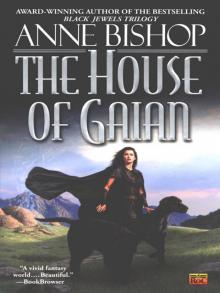 The House of Gaian
The House of Gaian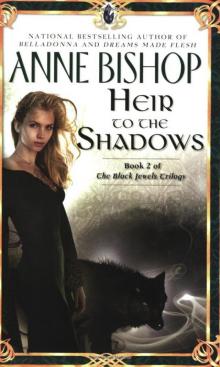 Heir to the Shadows
Heir to the Shadows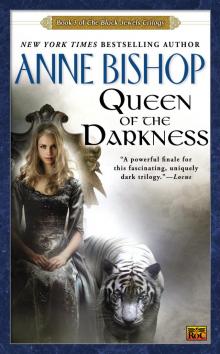 Queen of the Darkness
Queen of the Darkness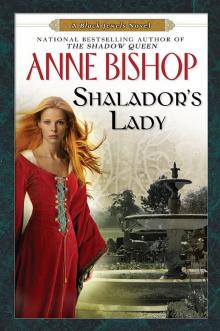 Shaladors Lady
Shaladors Lady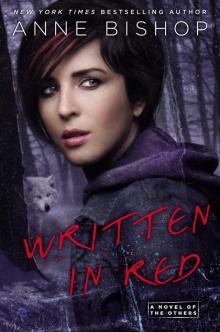 Written in Red
Written in Red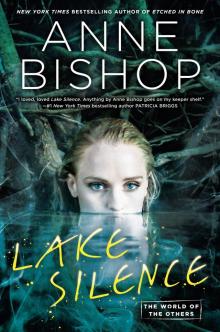 Lake Silence
Lake Silence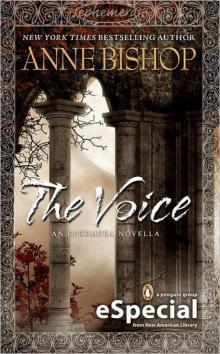 The Voice
The Voice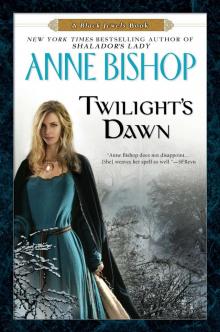 Twilights Dawn
Twilights Dawn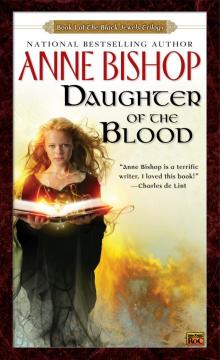 Daughter of the Blood
Daughter of the Blood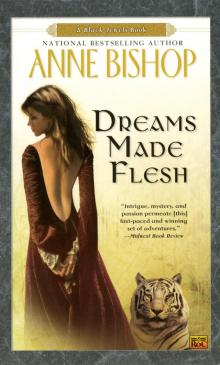 Dreams Made Flesh
Dreams Made Flesh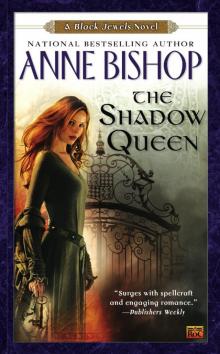 The Shadow Queen
The Shadow Queen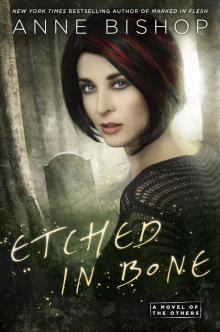 Etched in Bone
Etched in Bone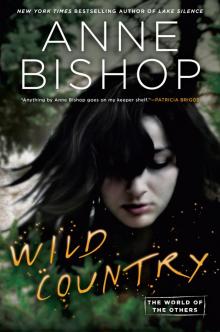 Wild Country
Wild Country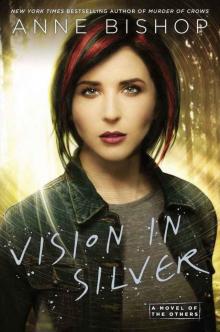 Vision in Silver
Vision in Silver Sebastian
Sebastian Shadows and Light
Shadows and Light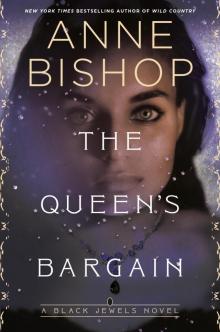 The Queen's Bargain
The Queen's Bargain Bridge of Dreams
Bridge of Dreams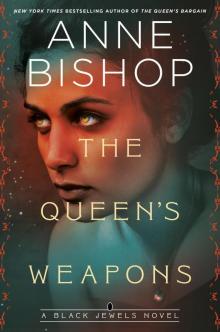 The Queen's Weapons
The Queen's Weapons Pillars of the World
Pillars of the World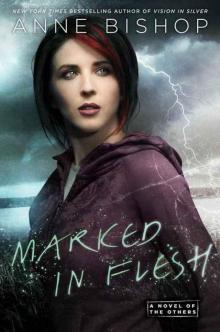 Marked in Flesh
Marked in Flesh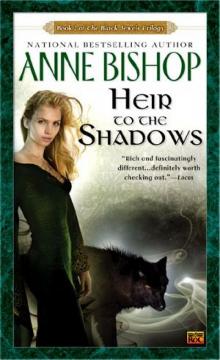 Heir to the Shadows dj-2
Heir to the Shadows dj-2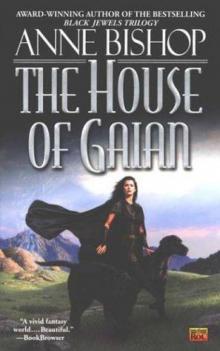 The House of Gaian ta-3
The House of Gaian ta-3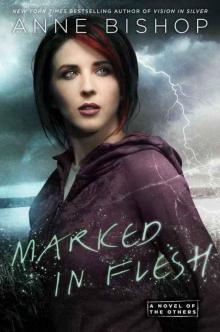 Marked In Flesh (The Others #4)
Marked In Flesh (The Others #4)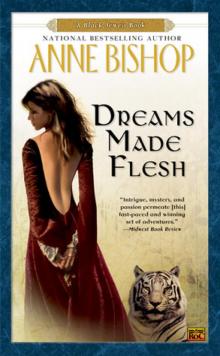 Dreams Made Flesh bj-5
Dreams Made Flesh bj-5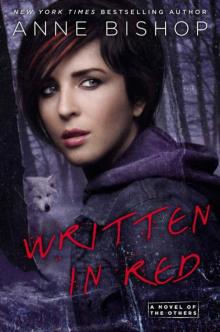 Written In Red: A Novel of the Others
Written In Red: A Novel of the Others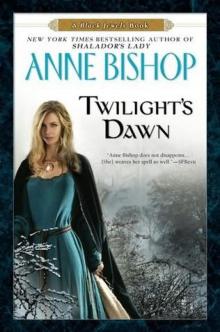 Twilight's Dawn dj-9
Twilight's Dawn dj-9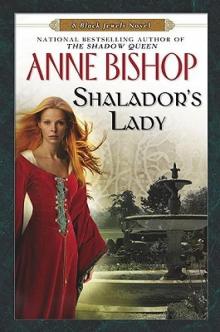 Shalador's Lady bj-8
Shalador's Lady bj-8 The Pillars of the World
The Pillars of the World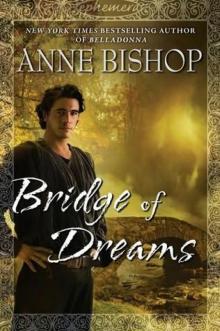 Bridge of Dreams e-3
Bridge of Dreams e-3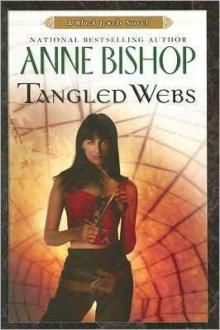 Tangled Webs bj-6
Tangled Webs bj-6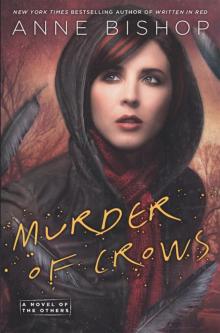 Murder of Crows: A Novel of the Others
Murder of Crows: A Novel of the Others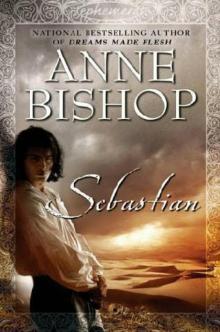 Sebastian e-1
Sebastian e-1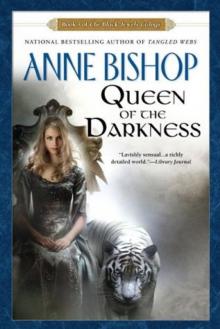 Queen of the Darkness bj-3
Queen of the Darkness bj-3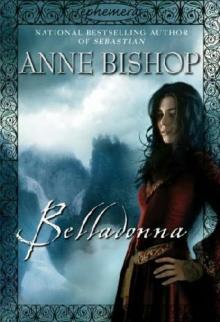 Belladonna e-2
Belladonna e-2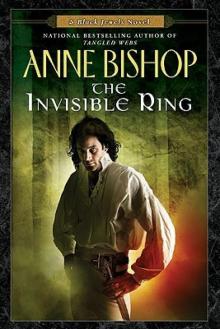 The Invisible Ring bj-4
The Invisible Ring bj-4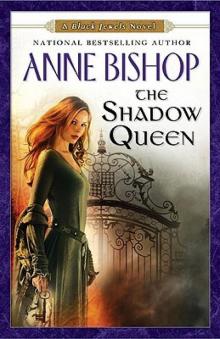 The Shadow Queen bj-7
The Shadow Queen bj-7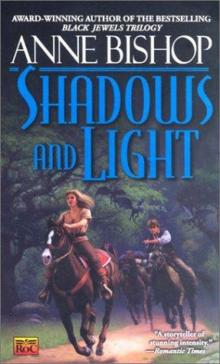 Shadows and Light ta-2
Shadows and Light ta-2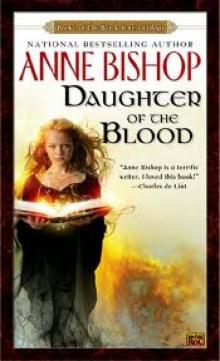 Daughter of the Blood bj-1
Daughter of the Blood bj-1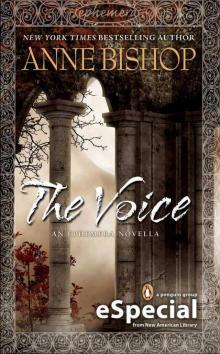 The Voice: An Ephemera Novella(An eSpecial from Roc)
The Voice: An Ephemera Novella(An eSpecial from Roc)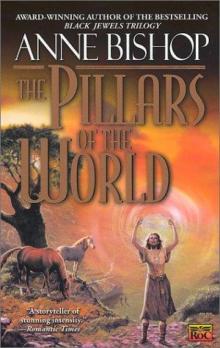 The Pillars of the World ta-1
The Pillars of the World ta-1